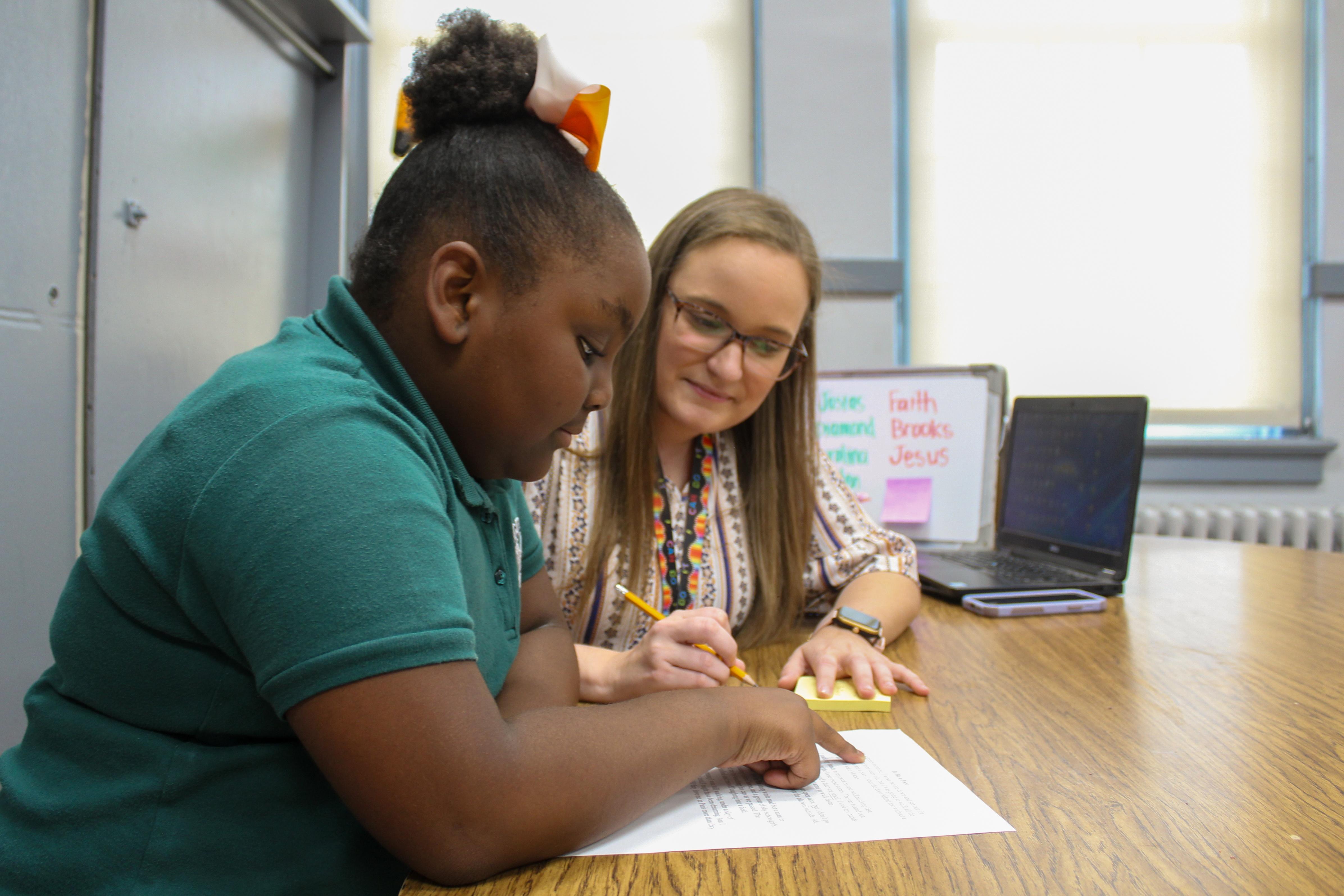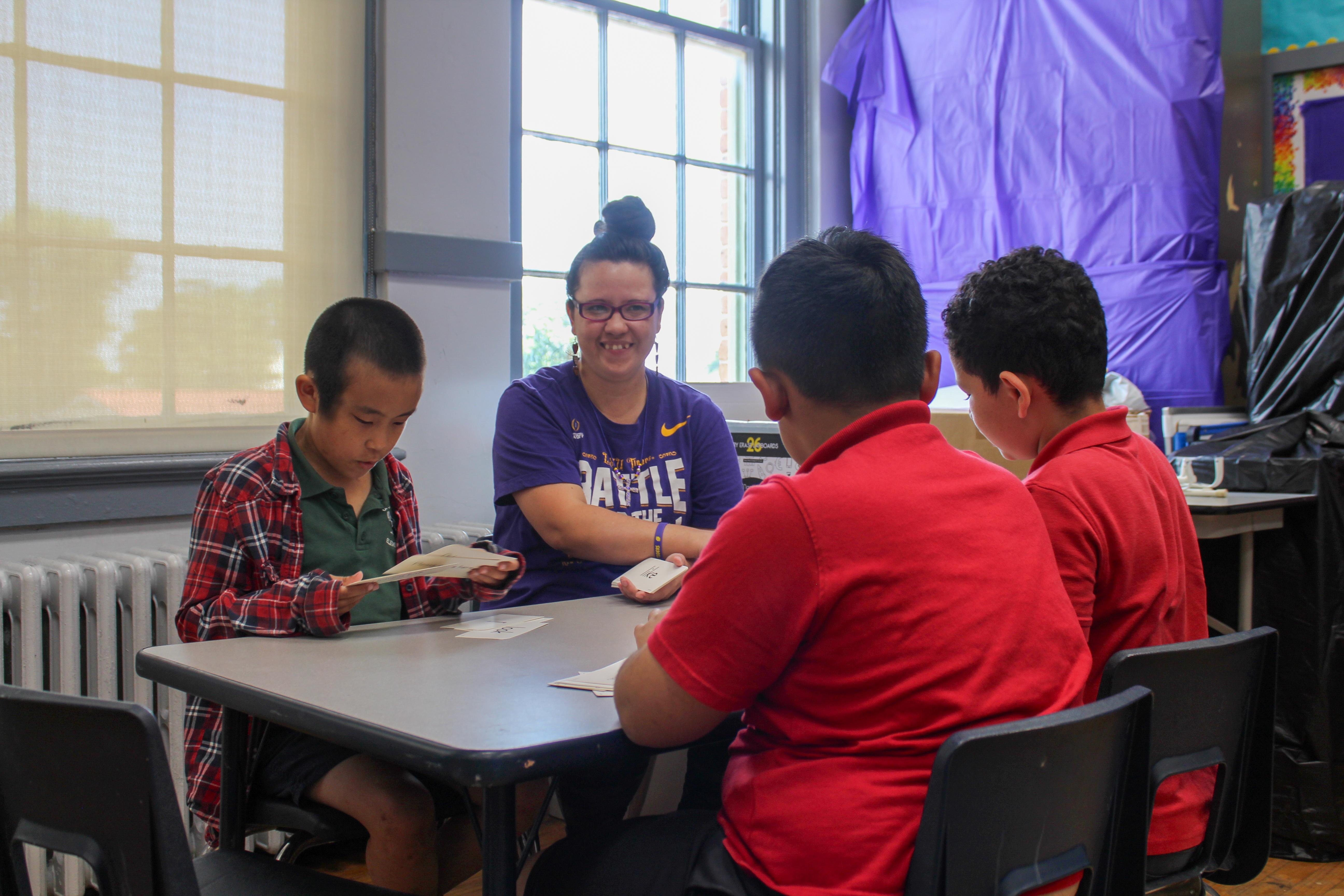Emily Gurtner sits at a small table in the corner of her third-grade classroom at Joseph C. Moscona Elementary in Metairie. She calls students over one at a time for a timed reading exercise.
“If you don’t know a word, that’s OK; just skip it and keep going,” she tells a tall girl named Carolina.
Today, she's testing students' oral fluency, the ability to read aloud accurately and quickly. Carolina reads a passage about a poet heading to Paris. When the alarm on Gurtner's phone goes off, she counts the words Carolina read correctly in one minute: 116.
“Did you beat the goal?” Gurtner asks. Carolina looks unsure.
“Yes, you did,” Gurtner says. “I'm very proud of you. Let’s keep up that good work.”
Carolina is so happy that she skips back to her seat.
Louisiana is the only state where students' reading scores have improved since 2019. Officials credit the state’s new policies, and now, the final piece is taking effect.
Starting this year, schools must hold back third graders who fail to pass the state’s reading test, unless they qualify for an exemption, including if a child is diagnosed with dyslexia, or new to the country and still learning English. Students who attend charter schools are also exempt.
Nearly a quarter of Louisiana’s third graders did not pass the test on their first try in April. Students could retake the test in May and have one final chance this summer.
Gurtner, Carolina’s summer school teacher, says she’s making progress. During the first week of the month-long program in Jefferson Parish, Gurtner says Carolina practiced reading tricky words and blending letter sounds.
“But I think it’s her confidence level that has been boosted so much,” Gurtner says. “Just with this environment here. It’s a smaller group setting than a normal class size.”
There are no more than 15 kids in each summer class, and two adults, compared to the typical 25 students.





